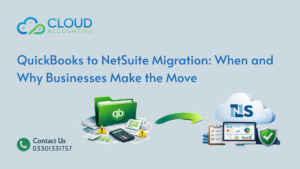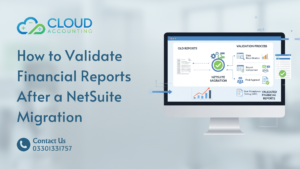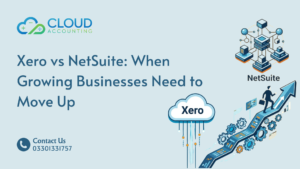Cryptocurrency has revolutionized how we do business, invest, and exchange value. Whether you’re a solo entrepreneur accepting crypto payments, an investor navigating digital assets, or a blockchain-based business growing fast you already know crypto isn’t just a buzzword. As cryptocurrency moves from the fringe to the forefront of modern finance, a new wave of businesses NFT creators, DeFi platforms, crypto exchanges, and Web3 startups are rewriting the rules of money. But while blockchain innovation is fast and flashy accounting for it? That’s a different story.
If you’re running or supporting a blockchain-based business, crypto accounting isn’t just a nice-to-have it’s mission-critical. And trying to handle it with traditional accounting knowledge alone is like bringing a calculator to a coding conference.
Let’s dive into why Crypto Accounting Training is essential, what you’ll actually learn, and how it can position your business for clarity, compliance, and long-term success.
The Wild World of Crypto Accounting: Why It’s Not “Just Another Asset”
Crypto is more than just another line item on your balance sheet. It’s a complex, constantly evolving digital asset class with its own unique challenges.
Here’s why accounting for blockchain-based businesses is anything but straightforward:
Volatility
Bitcoin doesn’t sit still. A $5,000 asset on Tuesday could be worth $6,000 (or $3,000) on Friday. It requires real-time valuation for accurate reporting.
Transaction Complexity
Unlike traditional sales, crypto transactions can include mining rewards, airdrops, staking, token swaps, gas fees, and NFTs—and they all have different tax treatments.
Regulatory Uncertainty
Crypto tax laws are evolving in real time. What was true last year may no longer apply this year. Staying compliant means staying current.
Multi-Wallet Chaos
Most blockchain businesses don’t have one tidy bank account; they have dozens of wallets across platforms, blockchains, and exchanges. Tracking it all requires specialized tools and workflows.
If you don’t know how to properly account for all this? You risk penalties, audits, or misreporting your financial health to investors and regulators.
Why You Need Specialized Crypto Accounting Training
There’s no shortage of online videos promising to teach you “crypto in five minutes,” but when it comes to real compliance, financial accuracy, and scalable systems, there’s no substitute for proper training.
Master the Fundamentals of Blockchain Accounting
Crypto training walks you through how digital assets work, how blockchain ledgers function, and how crypto is treated under IFRS, GAAP, and country-specific regulations.
You’ll understand:
- How to record different types of crypto transactions
- When to recognize gains or losses
- How to handle wallet-to-wallet transfers
- Which tax rules apply in which jurisdictions
Navigate Crypto Tax Laws with Confidence
Whether you’re in the UK, US, Australia, or beyond, cryptocurrency tax training helps you identify:
- Taxable vs. non-taxable events
- FIFO, LIFO, and specific ID methods for gains/losses
- How to calculate cost basis in volatile markets
- When and how to report staking income, airdrops, or hard forks
Example: Let’s say your business received 1 ETH from staking. Is that income? Should it be recorded at the market value at the time it was received? And what if you immediately sold it at a profit?
Without training, it can get messy fast. With training, it becomes routine.
Learn the Right Tools for Crypto Bookkeeping
From portfolio trackers to crypto-specific accounting software like CoinTracking, Koinly, Cryptio, or Bitwave, you’ll discover how to integrate wallet data with cloud accounting platforms like Xero and QuickBooks.
Most importantly, you’ll learn how to reconcile all of it. Yes, even that random Polygon wallet you forgot about.
How Crypto Training Transforms Blockchain Businesses
To be clear, training in crypto accounting is not limited to accountants. The blockchain industry benefits its founders, CFOs, tax advisors, and finance managers.
This is how it manifests in the actual world:
Regarding Startups: Establish the Proper Basis Early
Product and community are often the primary focus of new DeFi or Web3 startups. Early disregard for financial compliance, however, can lead to costly cleanup efforts (and legal problems) down the road.
Founders benefit from proper training.
- Gain insight into tokenomics through a financial perspective.
- Create wallet structures that are simple to check.
- Don’t mix business and personal cryptocurrency.
- Get ready for the due diligence of VCs.
We were manually recording revenue and minting NFTs. We switched to a ledger-based system following our crypto training, and we were able to see which collections were profitable.
The NFT platform’s founder
For Growing Teams: Scale Without Financial Blindspots
As your company grows, so does the complexity of your crypto activity. Training ensures your team can:
- Monitor on-chain and off-chain transactions
- Report taxable events quarterly
- Create clear, compliant records for investors and tax authorities
- Build accurate cash flow forecasts even when your “cash” is mostly crypto
“Our bookkeeper kept asking why our Stripe payouts didn’t match sales turns out, 30% of revenue was in USDC. Crypto training helped us build a hybrid fiat + crypto reporting model.”
COO, E-commerce DAO
For Advisors and Accountants: Become the Crypto Expert
If you’re a financial professional, offering blockchain business accounting as a service opens new doors. With proper training, you can:
- Attract high-growth Web3 clients
- Stand out in a niche with few qualified experts
- Command higher rates for specialized compliance work
- Avoid costly misreporting or legal exposure
And the demand? It’s booming. Crypto-native businesses need accountants who understand what they’re doing. Crypto accounting training puts you at the top of that shortlist.
What a Great Crypto Accounting Training Program Covers
Not all training is created equal. A good course should include:
- Blockchain fundamentals (wallets, tokens, smart contracts)
- Crypto-specific tax laws and how they vary by jurisdiction
- Real-life case studies involving sales, mining, staking, and NFTs
- Software demos: How to use tools like Koinly or Cryptio
- Hands-on reconciliation practice with mock wallets and transactions
- Regulatory compliance basics including AML/KYC considerations
Bonus points if it’s taught by professionals who’ve worked with real Web3 businesses, not just theorists
Ready to Stay Compliant and Scale Smarter?
Blockchain moves fast, but compliance even faster.
Whether you’re launching a tokenized startup, building an NFT marketplace, or simply trying to manage your crypto books without panic, Crypto Accounting Training is the smartest investment you can make in your financial future.
You don’t have to be a tax wizard. You just need to understand the game and have the right tools and knowledge to play it well.
Let Cloud Accounting Help You Get There
We offer specialized crypto training for business owners, finance teams, and accountants navigating blockchain finance. Whether you’re starting from scratch or looking to refine your systems, we’ll guide you step by step.
Book your free discovery call with Cloud Accounting today and let’s future-proof your blockchain business one transaction at a time.
Because in crypto, clarity isn’t optional. It’s everything.








